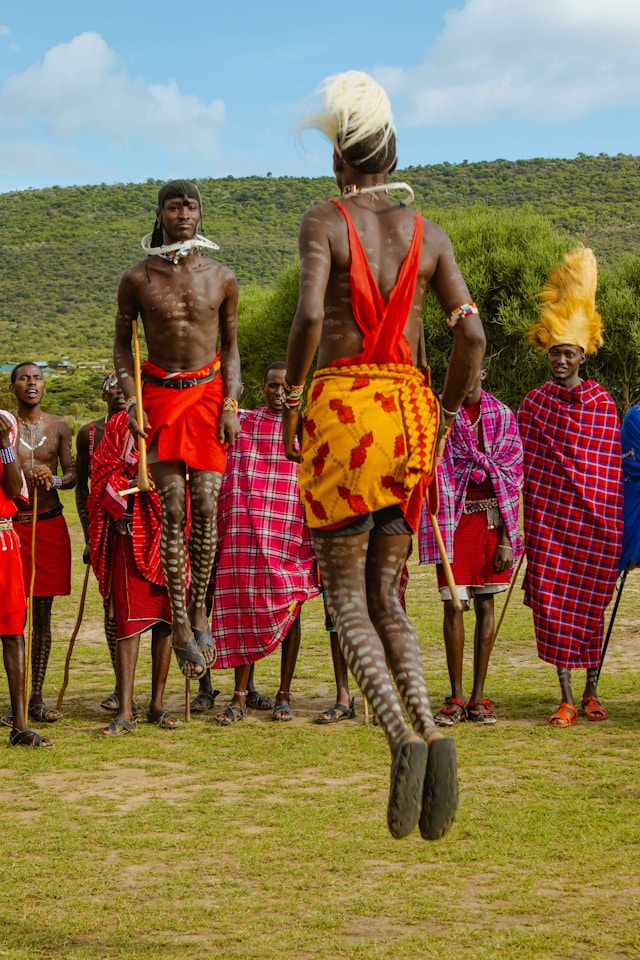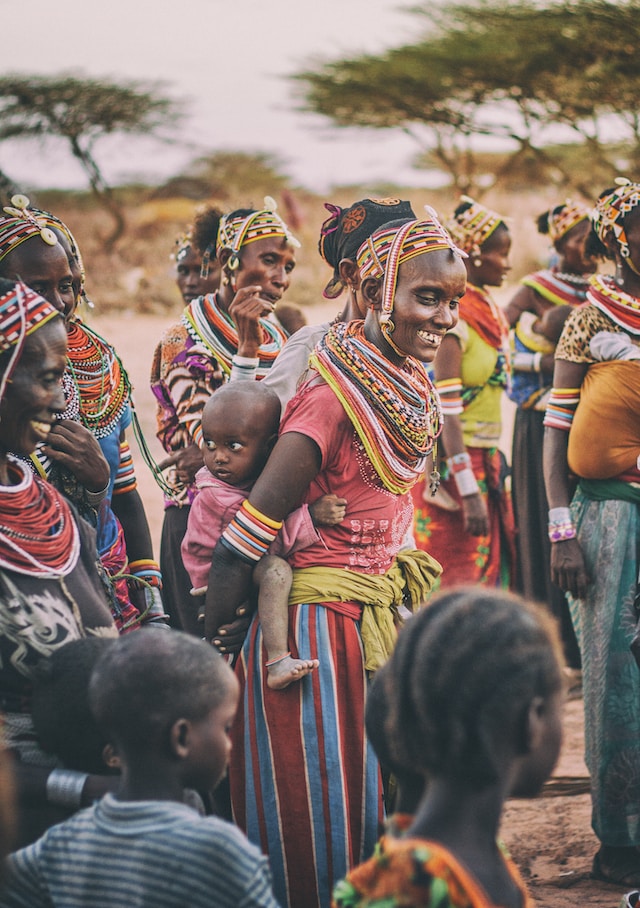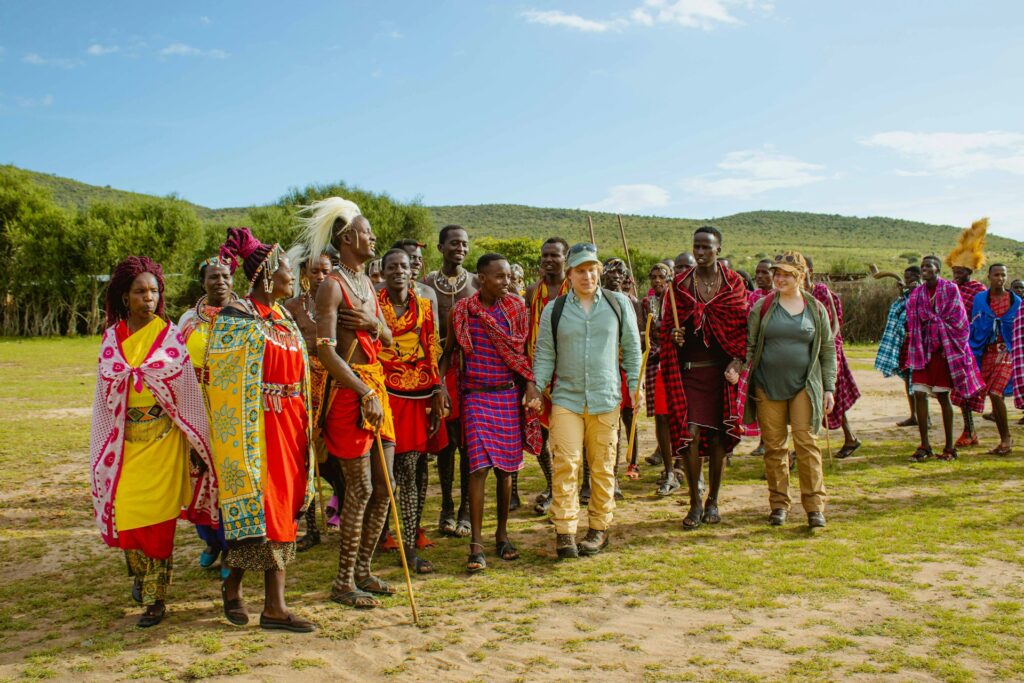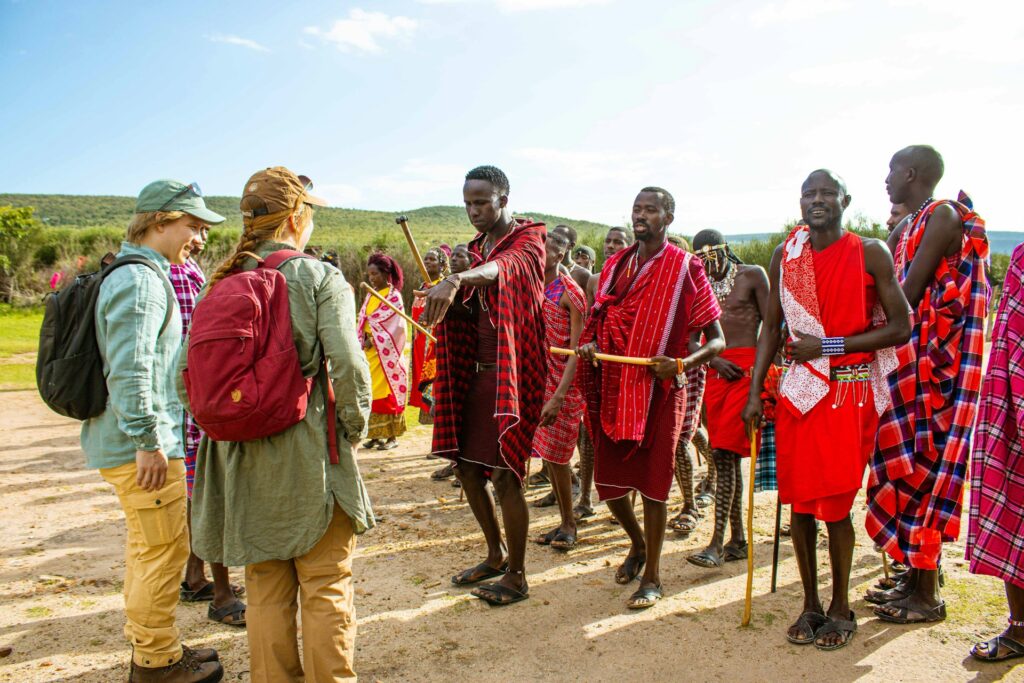If you’re looking for an unforgettable adventure that combines wildlife viewing with cultural immersion, an authentic cultural experience on safari might be just what you need. Imagine learning about the traditions, beliefs, and daily life of local communities while exploring the beautiful landscapes of Africa. From meeting the Maasai in Kenya to visiting the Himba in Namibia, there are plenty of opportunities to connect with the people and cultures of the continent.
One of the benefits of an authentic cultural experience on safari is that it allows you to see Africa from a different perspective. Instead of just observing wildlife from a distance, you can interact with the people who live in these areas and gain a deeper understanding of their relationship with nature.
You might learn about the medicinal plants used by traditional healers, taste traditional foods, or participate in a traditional dance. These experiences can be eye-opening and enriching, and they can help you appreciate the diversity and complexity of African cultures.

Understanding Cultural Safari Experiences
If you’re looking for a unique and immersive travel experience, a cultural safari might be just what you need. A cultural safari is an opportunity to explore the authentic cultural diversity of a destination. In this section, we’ll explore the concept of cultural safari experiences and why authenticity is so important.
The Concept of Cultural Safari
A cultural safari is a type of travel experience that focuses on exploring the cultural heritage of a destination. It’s an opportunity to learn about the customs, traditions, and way of life of the local people. Cultural safaris often involve staying in local communities, participating in cultural activities, and learning from local experts.
Cultural safaris can take many forms, depending on the destination. For example, in Tanzania, a cultural safari might involve visiting Maasai villages, learning about traditional crafts, and experiencing local music and dance. In South Africa, a cultural safari might involve visiting Zulu villages and learning about the history of apartheid.
Importance of Authenticity
When it comes to cultural safaris, authenticity is key. Authentic cultural experiences allow you to connect with local people and learn about their way of life. They also help to preserve cultural heritage and support local communities.
Authenticity can be achieved in a number of ways. One important factor is staying in local communities rather than in Western-style hotels. This allows you to experience daily life firsthand and support local businesses. Another important factor is working with local guides and experts who can provide insight into the local culture.
In conclusion, cultural safaris offer a unique and immersive travel experience. By focusing on authenticity, you can learn about the cultural heritage of a destination while supporting local communities.

Planning Your Safari for Cultural Immersion
If you’re planning a safari for cultural immersion, there are several important factors to consider. By choosing the right destination, timing your trip correctly, and engaging with local communities, you can create an authentic and meaningful cultural experience on your safari.
Choosing the Right Destination
When it comes to cultural immersion on safari, not all destinations are created equal. Some countries, such as Kenya and Tanzania, are known for their rich cultural heritage and offer a wide range of opportunities for cultural engagement. Other countries, such as South Africa, may focus more on wildlife viewing and offer fewer opportunities for cultural immersion.
Researching your destination ahead of time can help you choose the right location for your cultural safari. Look for destinations that offer cultural activities such as village visits, craft workshops, and performances. You may also want to consider working with a tour operator that specializes in cultural safaris to ensure that you get the most out of your experience.
Timing and Seasonality
Timing is another important factor to consider when planning a cultural safari. Depending on the destination, certain times of the year may be better for cultural activities than others. For example, in Tanzania, the Maasai people hold their annual cultural festival in August, while in Kenya, the annual Lamu Cultural Festival takes place in November.
In addition to cultural events, you’ll also want to consider the weather and wildlife viewing opportunities when planning your safari. Depending on the destination, certain times of the year may offer better wildlife viewing or more comfortable temperatures.
Engaging with Local Communities
Engaging with local communities is a key component of any cultural safari. By interacting with local people, you can gain a deeper understanding of their culture and way of life. Some ways to engage with local communities on safari include:
- Visiting local villages and meeting with community members
- Participating in craft workshops to learn traditional skills
- Attending cultural performances such as music and dance
- Learning about local conservation efforts and ways to support them
When engaging with local communities, it’s important to be respectful and mindful of cultural differences. Be open to learning and experiencing new things, and always ask for permission before taking photos or participating in activities. By approaching cultural immersion with an open mind and a spirit of curiosity, you can create a truly authentic and meaningful safari experience.

Activities for Cultural Engagement
When going on a safari, game drives are not the only activities to enjoy. You can also engage in cultural experiences that will give you a glimpse of the local way of life. Here are some cultural activities you can do on your safari trip:
Village Visits
Visiting a local village is a great way to experience the local culture. You can interact with the locals, learn about their way of life, and even participate in some of their daily activities. You can visit a Maasai village in Tanzania, for example, where you can learn about their traditional way of life and even join them in a traditional dance.
Cultural Performances
Cultural performances are a great way to experience the local music, dance, and storytelling traditions. You can watch a traditional dance performance by the San people in Botswana, for example, or attend a drumming session in Tanzania. These performances are often accompanied by traditional costumes and instruments, making for a truly immersive experience.
Crafts and Artisan Workshops
Crafts and artisan workshops are a great way to learn about the local art and craft traditions. You can visit a bead-making workshop in Kenya, for example, where you can learn how to make traditional Maasai beadwork. You can also visit a woodcarving workshop in Tanzania, where you can learn how to carve traditional African masks.
Engaging in cultural activities on your safari trip will not only give you a deeper appreciation of the local culture but also contribute to the local economy. Make sure to book with responsible tour operators that prioritize sustainable tourism practices and benefit the local communities.

Responsible and Respectful Travel
When going on a safari, it’s essential to be a responsible and respectful traveler. This means being mindful of the local culture, environment, and economy. Here are some tips to help you travel responsibly and respectfully:
Cultural Sensitivity
One of the best ways to experience authentic cultural experiences on safari is by being culturally sensitive. This means respecting the local customs and traditions and being open to learning about them. For example, when visiting a Maasai village, it’s important to dress modestly and ask for permission before taking photos. Additionally, it’s crucial to avoid making assumptions or judgments about the local culture and to approach it with an open mind.
Supporting Local Economies
Another way to be a responsible traveler is by supporting local economies. This means staying in locally-owned accommodations, eating at locally-owned restaurants, and purchasing souvenirs from local artisans. By doing so, you’re helping to support the local community and economy, which is essential for sustainable tourism.
Environmental Considerations
Lastly, it’s crucial to consider the environment when traveling on safari. This means being mindful of your carbon footprint and reducing waste whenever possible. For example, you can bring a reusable water bottle instead of purchasing plastic bottles, and you can opt for eco-friendly accommodations that use renewable energy and practice sustainable tourism.
By being a responsible and respectful traveler, you can have an authentic cultural experience on safari while also contributing to sustainable tourism.

Sharing Your Experience
After experiencing authentic cultural activities on safari, you may want to share your experiences with others. Here are some ways to share your experiences:
Storytelling and Social Media
Sharing your stories on social media is a great way to share your experiences with others. You can post pictures and videos of your cultural experiences on Instagram, Facebook, or Twitter. You can also write a blog post about your experiences and share it on your social media accounts. This will allow your friends and family to see what you experienced and learn more about the culture.
Creating Lasting Connections
Another way to share your experiences is by creating lasting connections with the people you met on your safari. You can exchange contact information with your tour guide or the locals you met during your cultural activities. This will allow you to keep in touch and learn more about their culture. You can also support their businesses by purchasing souvenirs or products that they make.
Sharing your experiences with others is a great way to promote cultural understanding and appreciation. By sharing your stories and creating lasting connections, you can help others learn more about the culture and traditions of the places you visited.
Leave a Reply